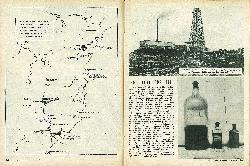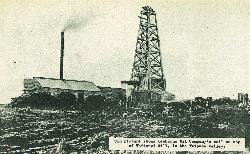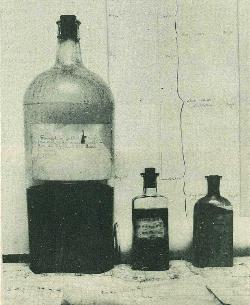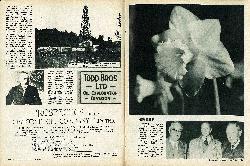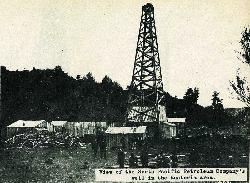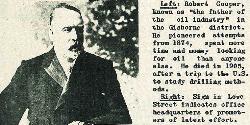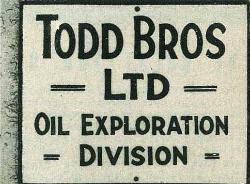31
The Quest For Oil
For almost a hundred years, the vision of oil in payable quantities has excited the imagination of East Coasters. In dozens of places from Gisborne to the East Cape, there are promising seepages of oil and escapes of gas which in the past have lured investors to play big financial stakes in the hope of rich rewards. But so far the answer has always been the same. The money has been poured in, but, except in the form of interesting samples, the oil hasn't come out.
Now the first pages of a new chapter in the long story of East Coast oil exploration are being written. The British Petroleum Company and Todd Bros. Ltd., both of whom hold prospecting licences in Gisborne, Hawkes Bay, and Wairarapa, have joined forces to promote a £500,000 search. Surveyors are already at work in an area south-west of Ruatoria.
Since 1874, over 30 wells have been sunk in the Gisborne-East Coast district at a cost of hundreds of thousands of pounds. One of the most promising areas was at Waitangi Hill, in the Waipaoa valley, where in 1909 the Gisborne Oil Co. Ltd. struck oil at 655 feet. But the total flow amounted to only a few barrels, and the Company folded up.
32
What are the chances of finding oil in big quantities on the East Coast? Many experts now consider that the odds are far more favourable than they were in the past. Geological theory has undergone a sharp change in recent times, may hold the clue to accurate location of drilling sites. Modern drillers have benefit of more efficient equipment and methods.
Early drillers for oil often started where seepage was greatest. Seepage indicated broken strata, which made drilling difficult. In most cases bores caved in. Just prior to World War II, deep wells were drilled at Ngatapa and Morere in the most ambitious of all attempts to find oil in Golden Gisborne.
View of the South Pacific Petroleum Company's well in the Ruatoria area.
Robert Cooper, known as "the father of the oil industry" in the Gisborne district. He pioneered attempts from 1874, spent more time and money looking for. oil than anyone else. He died in 1905, after a trip to the U.S. to study drilling methods.
Sign in Lowe Street indicates office headquarters of promoters of latest effort.


